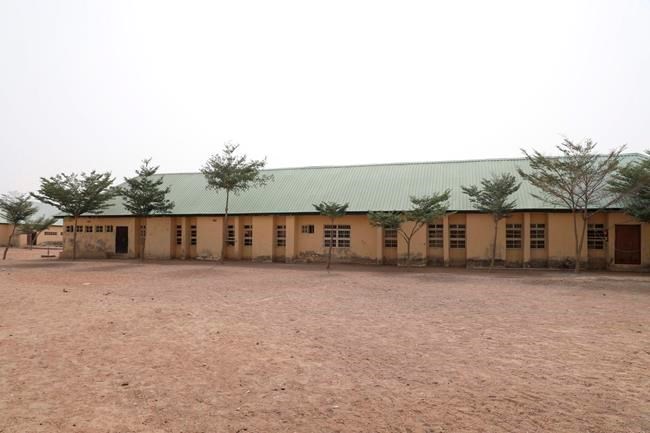LAGOS, Nigeria — Gunmen abducted 317 girls from a boarding school in northern Nigeria on Friday, police said, the latest in a series of mass kidnappings of students in the West African nation.
Police and the military have begun joint operations to rescue the girls after the attack at the Government Girls Junior Secondary School in Jangebe town, according to a police spokesman in Zamfara state, Mohammed Shehu, who confirmed the number abducted.
One parent, Nasiru Abdullahi, told The Associated Press that his daughters, aged 10 and 13, are among the missing.
“It is disappointing that even though the military have a strong presence near the school they were unable to protect the girls,” he said. “At this stage, we are only hoping on divine intervention.”
Resident Musa Mustapha said the gunmen also attacked a nearby military camp and checkpoint, preventing soldiers from interfering while the gunmen spent several hours at the school. It was not immediately clear if there were any casualties.
Several large groups of armed men operate in Zamfara state, described by the government as bandits, and are known to kidnap for money and to push for the release of their members from jail.
Nigerian President Muhammadu Buhari said Friday the government’s primary objective is to get all the school hostages returned safe, alive and unharmed.
“We will not succumb to blackmail by bandits and criminals who target innocent school students in the expectation of huge ransom payments,” he said. “Let bandits, kidnappers and terrorists not entertain any illusions that they are more powerful than the government. They shouldn’t mistake our restraint for the humanitarian goals of protecting innocent lives as a weakness, or a sign of fear or irresolution.”
He called on state governments to review their policy of making payments, in money or vehicles, to bandits.
“Such a policy has the potential to backfire with disastrous consequences,” Buhari said. He also said state and local governments must play their part by being proactive in improving security in and around schools.
U.N. Secretary-General Antonio Guterres strongly condemned the abductions and called for the girls' “immediate and unconditional release” and safe return to their families, calling attacks on schools a grave violation of human rights and the rights of children, U.N. spokesman Stephane Dujarric said.
The U.N. chief reaffirmed U.N. support to Nigeria’s government and people “in their fight against terrorism, violent extremism and organized crime,” Dujarric said, and urged Nigerian authorities “to spare no effort in bringing those responsible for this crime to justice.”
“We are angered and saddened by yet another brutal attack on schoolchildren in Nigeria,” said Peter Hawkins, UNICEF representative in the country. “This is a gross violation of children’s rights and a horrific experience for children to go through.” He called for their immediate release.
Nigeria has seen several such attacks and kidnappings over the years, notably the mass abduction in April 2014 by jihadist group Boko Haram of 276 girls from the secondary school in Chibok in Borno state. More than a hundred of the girls are still missing.
Friday’s attack came less than two weeks after gunmen abducted 42 people, including 27 students, from the Government Science College Kagara in Niger State. The students, teachers and family members are still being held.
In December, 344 students were abducted from the Government Science Secondary School Kankara in Katsina State. They were eventually released.
Anietie Ewang, Nigeria researcher at Human Rights Watch, noted the recent abductions and tweeted that “Strong action is required from the authorities to turn the tide & keep schools safe.”
Amnesty International also condemned the “appalling attack,” warning in a statement that “the girls abducted are in serious risk of being harmed.”
Teachers have been forced to flee to other states for protection, and many children have had to abandon their education amid frequent violent attacks in communities, Amnesty said.
___
AP writer Carley Petesch in Dakar, Senegal contributed to this report.
Sam Olukoya, The Associated Press



